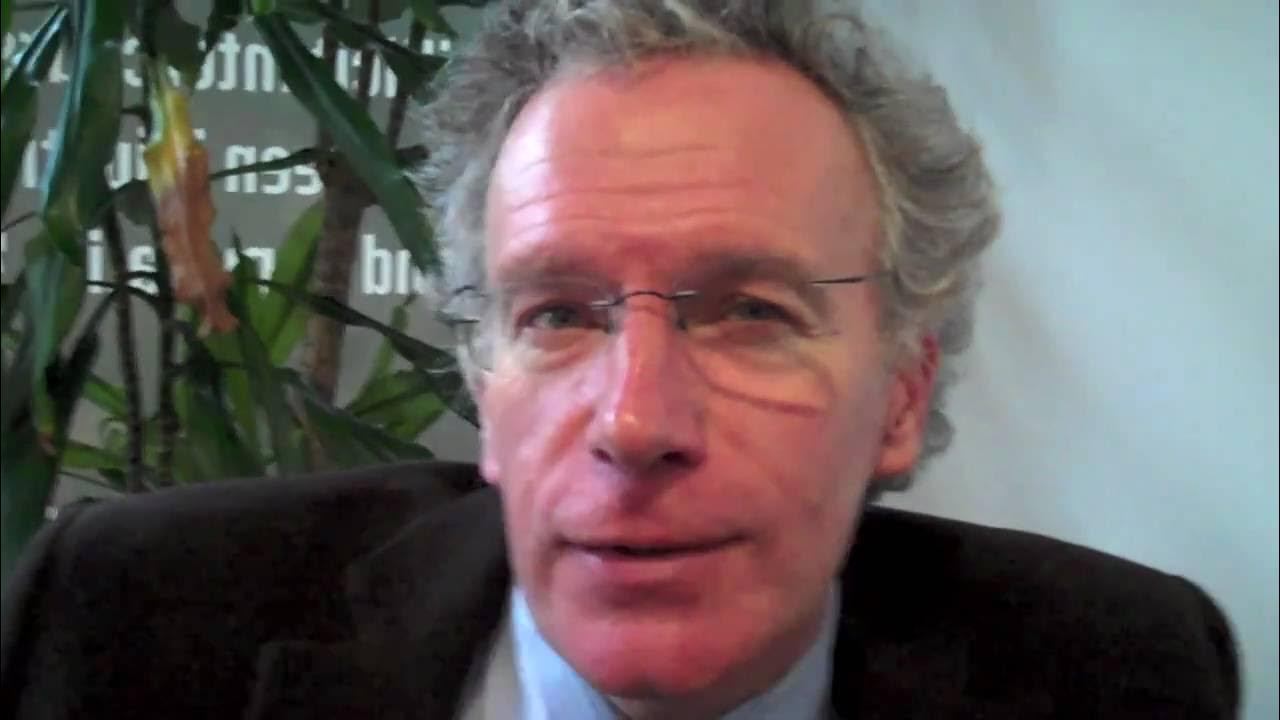Crisis and control: This is what the EU plans to do
Summary
TLDRIn a thought-provoking panel discussion, the speaker critiques the prevailing economic narratives in Europe, arguing that crises are politically constructed rather than purely economic. Drawing on historical references, they emphasize the need for a strategic approach to address Europe's productivity decline, competition from China, and regulatory burdens. The speaker suggests that true growth stems not from increased regulation but from fostering an environment conducive to business development, likening government roles to gardeners nurturing plants. Ultimately, they call for a counter-narrative to the European Commission's policies, advocating for a vision that genuinely promotes prosperity and stability in Europe.
Takeaways
- 😀 The speaker disagrees with other panelists, emphasizing that differing opinions foster discussion.
- 🤔 The Draghi report, while lengthy and intimidating, addresses underlying issues beyond economics.
- 📉 The concept of managing crises is highlighted, with the speaker arguing that political narratives shape public perception.
- 🏛️ The EU faces a crisis not just of economics but also of identity and purpose, questioning its fundamental values.
- 🛠️ The speaker believes that Europe's productivity is suffering due to overregulation and lack of entrepreneurship.
- 🌍 Historical context is provided, indicating a shift from reliance on the U.S. for safety and security to facing new global challenges.
- 📊 There is a call for harmonization and centralization in response to fragmentation within the EU.
- 💡 The speaker argues that capital is not the main issue; instead, there is a need for good business plans and ideas.
- 🌱 The government should act as a gardener, creating conditions for businesses to thrive, with low energy prices and minimal regulations.
- 🇪🇺 The overarching goal is to prevent the establishment of a European superstate while fostering a narrative that promotes a prosperous Europe.
Q & A
What is the primary focus of the panel discussion?
-The panel discussion centers on the economic issues in Europe as articulated in the Draghi report, highlighting differing viewpoints among the panelists.
What does the speaker think about the Draghi report?
-The speaker finds the Draghi report impressive but believes it serves a political agenda rather than simply addressing economic issues.
How does the speaker relate the concept of a 'crisis' to political management?
-The speaker suggests that politicians use crises, like the economic crisis, to manage narratives and maintain control, referencing Churchill's quote about not wasting a good crisis.
What is the speaker's critique of the EU's approach to economic growth?
-The speaker criticizes the EU for overregulation and fragmentation, arguing that these lead to stagnation and that the EU lacks a cohesive economic growth plan.
What analogy does the speaker use to explain how businesses should be nurtured?
-The speaker uses the analogy of a plant needing light, nutrients, and space to grow, comparing businesses to plants that require low energy prices and minimal regulation to thrive.
What are the speaker's views on capital availability in the EU?
-The speaker believes that capital is not the issue for economic growth; rather, the lack of good plans and ideas is what hampers progress.
What fundamental values does the speaker attribute to the EU?
-The speaker mentions fundamental values such as prosperity, equity, freedom, peace, and democracy, questioning their definitions and relevance to economic policy.
How does the speaker perceive the EU's potential shift towards a superstate?
-The speaker suggests that the EU aims to become a superstate with fiscal unity, drawing a parallel to the United States and indicating a need for a unified approach.
What role does the speaker believe the government should play in the economy?
-The speaker believes the government should act as a 'gardener' that creates favorable conditions for businesses to grow by minimizing regulations and taxes.
How does the speaker propose addressing the challenges outlined in the Draghi report?
-The speaker advocates for creating a new narrative that counters the current crisis rhetoric, aiming to articulate a positive vision for Europe that fosters growth and prosperity.
Outlines

Dieser Bereich ist nur für Premium-Benutzer verfügbar. Bitte führen Sie ein Upgrade durch, um auf diesen Abschnitt zuzugreifen.
Upgrade durchführenMindmap

Dieser Bereich ist nur für Premium-Benutzer verfügbar. Bitte führen Sie ein Upgrade durch, um auf diesen Abschnitt zuzugreifen.
Upgrade durchführenKeywords

Dieser Bereich ist nur für Premium-Benutzer verfügbar. Bitte führen Sie ein Upgrade durch, um auf diesen Abschnitt zuzugreifen.
Upgrade durchführenHighlights

Dieser Bereich ist nur für Premium-Benutzer verfügbar. Bitte führen Sie ein Upgrade durch, um auf diesen Abschnitt zuzugreifen.
Upgrade durchführenTranscripts

Dieser Bereich ist nur für Premium-Benutzer verfügbar. Bitte führen Sie ein Upgrade durch, um auf diesen Abschnitt zuzugreifen.
Upgrade durchführenWeitere ähnliche Videos ansehen
5.0 / 5 (0 votes)






